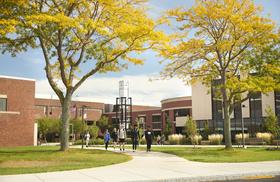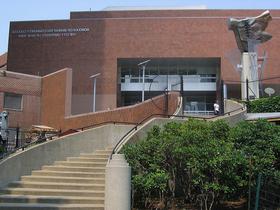In their quest to find effective transfer agreements for their students, community colleges appear to be tapping an unlikely source – for-profit schools. The University of Phoenix has announced partnerships pending with several community colleges nationwide to offer students at these schools seamless four-year degree options. However, not everyone believes the union between for-profit schools and community colleges will be amicable or beneficial.
100 New Partnerships Announced by For-Profit
The American Independent reports that the University of Phoenix will launch over 100 partnerships with various community colleges nationwide this upcoming school year. The for-profit university hopes the new arrangements will provide the financial shot in the arm the institution needs after suffering significant budget setbacks in recent years. Reputation is also a concern for the University of Phoenix, as the for-profit sector has been plagued with reports of low completion rates and high student debt.
Despite promises of dozens of partnerships by the end of 2013, the University of Phoenix has only finalized agreements with a handful of community colleges thus far. The most notable is a transfer agreement with Northern Virginia Community College, known as NOVA. NOVA has received plenty of attention from the recent administration since this is the school where Dr. Jill Biden, wife of Vice President Joe Biden, teaches.
The second system partnered with the University of Phoenix is the Maricopa Community College System in Arizona. According to a press release at Bloomberg, the community college system will work with for-profit schools to provide ongoing training in business, healthcare, hospitality, and manufacturing. Through the partnership, both the community colleges and the University of Phoenix will work directly with local employers to provide the training necessary to enhance the workforce in the state.
“The Maricopa Community Colleges are committed to helping our students reach their educational goals, and part of that commitment is ensuring that they have as many ways as possible to achieve success,” Dr. Rufus Glasper, chancellor for the community college system, stated in the Bloomberg report. “This new partnership will provide a transition from associate’s to bachelor’s degree in areas like manufacturing, hospitality and business, where we know we need skilled workers and need them now.”
The Maricopa Community College System is one of the largest in the country, featuring ten separate community college campuses across the state. Students who begin their studies at a Maricopa school will then be able to transfer to the University of Phoenix to complete their bachelor’s degree in their chosen field of study.
This video reports on how Franklin University partners with community colleges.
Playing a Different Tune
Despite their claims of the benefits of community colleges in Arizona, the University of Phoenix has not always been so quick to nurture a positive relationship with these schools. Washington Monthly reported at the end of 2012 that the university played a key role in shooting down a plan that would have allowed community colleges to offer their four-year degree programs. University officials had stated that the change would “cost taxpayers too much money, duplicated existing programs, and ‘harm’ the private sector,” according to the report.
It appears the for-profit did not want to see community colleges become a direct competitor for their business. Community colleges and for-profit schools typically target the same student demographic – adult, working students seeking to further their career options. If community colleges began to offer a four-year degree option, they would undoubtedly provide significant benefits over four-year schools in terms of cost. Currently, for-profit schools charge as much as $500 per credit hour, while community colleges typically charge less than $100 for the same credit hour.
This video shows how you can transfer from Cuyahoga Community College to the University of Phoenix.
Financial Downturn Also Raises Skepticism
Another reason some are raising questions about the intentions of the University of Phoenix is the school’s current financial situation. Inside Higher Ed reports the school recently announced more than $300 million in cost-cutting, including closing some of the university’s physical campuses. The primary reason for the budget cuts is lower enrollment numbers. In 2010, the school boasted a total enrollment of 475,000 degree-seeking students, but that number had dropped to just 328,000 in a few short years.
To help offset some of their losses and balance their budget, the university is letting approximately 800 non-faculty employees go, and closing down some campuses. The school is also focusing on more effective localized training to help students prepare for specific careers in their area.
Training for the Oil and Gas Industry
To that end, the University of Phoenix recently announced a partnership with the American Petroleum Institute that will provide training to select community colleges nationwide. According to a press release at Market Watch, the university will work with community colleges to offer a transfer program to “foster highly skilled talent in the oil and gas industry.” The pathways will help students with an associate degree earn their four-year degree through a field of study that will be highly relevant to this industry.
This video from the American Petroleum Institute describes its missions and work.
The press release states that the oil and gas industry is a stable sector in the American economy, providing 9.2 million jobs in the U.S. By training up a new workforce for this industry, the schools involved hope to sustain the industry with highly skilled labor, while ensuring employment for many Americans investing in their training and education.
It is a formula that is working for community colleges, but time will tell if that same formula can be successfully used by for-profit schools as well.
Questions? Contact us on Facebook and Instagram. @communitycollegereview
#ForProfitEducation #CommunityCollegePartnerships #commnitycolleges















